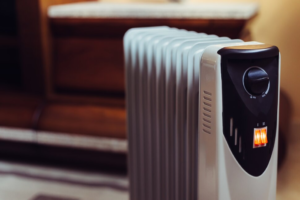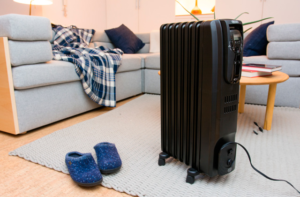Efficient Heating Solutions: Maximizing The Lifespan Of Your Electric Oil Heaters

Contents
- 1 I. Introduction
- 2 II. Factors Influencing Heater Lifespan
- 3 III. Strategies For Maximizing Lifespan
- 4 IV. Conclusion
- 5 Frequently Asked Questions (FAQ)
- 5.1 Q: How can I maximize the lifespan of my electric oil heater?
- 5.2 Q: What are some common issues that can affect the lifespan of electric oil heaters?
- 5.3 Q: Are there any specific maintenance tasks I should perform regularly?
- 5.4 Q: How can I prevent my electric oil heater from overheating?
- 5.5 Q: Is it worth investing in a programmable thermostat for my electric oil heater?
I. Introduction
In the realm of home heating solutions, oil electric heaters stand out as reliable, efficient, and versatile appliances. Designed to provide warmth in enclosed spaces, these heaters utilize a simple yet effective mechanism that involves heating oil within a sealed reservoir. As the oil heats up, it radiates warmth into the surrounding area, ensuring a consistent and comfortable indoor environment. If you’re interested to learn more about how long oil-filled electric heaters typically last, check out.
A. Brief Overview Of Electric Heaters
Electric heaters come in various sizes and designs, catering to different needs and preferences. From compact models suitable for personal use to larger units capable of heating entire rooms, there’s a diverse range of options available to consumers. Some feature built-in thermostats for precise temperature control, while others offer additional safety features such as tip-over protection and overheating safeguards.
Unlike traditional central heating systems, which are fixed in place, these heaters can be easily moved from room to room, providing targeted heating wherever it’s needed most. This flexibility makes them particularly popular in homes where certain areas may require extra warmth, such as drafty corners or poorly insulated spaces.
By harnessing the heat-retaining properties of oil, they can deliver a steady stream of warmth without consuming excessive amounts of electricity. This not only helps to reduce energy bills but also minimizes the environmental impact associated with heating operations.
B. Importance Of Maximizing The Lifespan Of Heating Appliances
In today’s fast-paced world, where convenience often takes precedence over longevity, it’s easy to overlook the significance of maximizing the lifespan of our household appliances. However, when it comes to heating appliances like electric oil heaters, adopting a proactive approach to maintenance and care can yield significant benefits in the long run.
First and foremost, extending the lifespan of heating appliances helps to safeguard your investment. Purchasing a high-quality electric oil heater represents a financial commitment, and ensuring that it remains in optimal condition maximizes the return on that investment. By avoiding premature breakdowns and the need for costly repairs or replacements, you can effectively prolong the utility and value of your appliance.
Furthermore, prioritizing the longevity of heating appliances contributes to sustainability efforts and environmental conservation. The manufacturing process of household appliances consumes valuable resources and energy, and premature disposal contributes to landfill waste and pollution. By making conscious efforts to extend the lifespan of your electric oil heater, you’re reducing your carbon footprint and promoting a more eco-friendly approach to consumption.
Additionally, maximizing the lifespan of heating appliances enhances overall safety within the home. Malfunctioning or poorly maintained heaters can pose fire hazards and other safety risks, putting occupants and property in danger. By adhering to recommended maintenance practices and promptly addressing any issues that arise, you can mitigate these risks and ensure a safer living environment for you and your loved ones.

II. Factors Influencing Heater Lifespan
A. Quality Of Construction Materials
The longevity and performance of an electric oil heater are heavily influenced by the quality of materials used in its construction. When selecting a heater, it’s essential to opt for models crafted from durable and corrosion-resistant materials. High-grade steel or aluminum housings, for example, offer superior durability and can withstand the rigors of daily use without succumbing to rust or deterioration.
Internally, components such as heating elements and thermostat mechanisms should also be of premium quality. Look for heaters equipped with high-quality heating elements that boast excellent conductivity and heat retention properties. Similarly, investing in models featuring reliable thermostat systems ensures precise temperature regulation, preventing unnecessary strain on the heater and prolonging its lifespan.
Furthermore, paying attention to the construction quality of the heater’s oil reservoir is crucial. A robust reservoir constructed from materials resistant to corrosion and thermal expansion minimizes the risk of leaks and other structural failures, preserving the integrity of the heater over time. Prioritizing heaters with sturdy, well-constructed reservoirs is essential for maximizing longevity and minimizing the need for repairs or replacements.
B. Proper Installation And Maintenance Practices
The significance of proper installation and maintenance cannot be overstated when it comes to extending the lifespan of an electric oil heater. Ensuring that the heater is installed correctly from the outset sets the stage for optimal performance and longevity. Follow manufacturer guidelines and recommendations meticulously during installation, paying attention to factors such as positioning, electrical connections, and ventilation requirements.
Regular maintenance routines are equally vital for preserving the health and efficiency of your electric oil heater. Establish a schedule for cleaning and inspecting the heater, focusing on areas prone to dust buildup and debris accumulation. Keep the heater’s exterior and air vents free from obstructions to facilitate proper airflow and prevent overheating.
Additionally, be diligent about checking and replacing air filters as needed to maintain optimal indoor air quality and prevent dust and debris from infiltrating the heater’s internal components. Routine inspections should also include examination of electrical connections, controls, and safety features to ensure they’re functioning correctly and mitigate the risk of malfunctions or hazards.
C. Environmental Factors Such As Humidity And Temperature Fluctuations
Environmental conditions play a significant role in determining the lifespan of an electric oil heater, with factors such as humidity and temperature fluctuations exerting a notable impact. Exposure to high levels of humidity can accelerate corrosion and rust formation, particularly in heaters with metal components. To mitigate this risk, it’s essential to maintain moderate humidity levels within the indoor environment and implement measures such as using dehumidifiers if necessary.
Temperature fluctuations can also affect the performance and longevity of oil electric heaters, especially if they’re subjected to extreme temperature variations. Rapid changes in temperature can place undue stress on the heater’s components, leading to premature wear and tear. To minimize the impact of temperature fluctuations, avoid placing the heater near sources of heat or cold drafts and strive to maintain a consistent indoor temperature whenever possible.
III. Strategies For Maximizing Lifespan
A. Regular Cleaning And Maintenance Tips
Maintaining a clean and well-maintained electric oil heater is essential for maximizing its lifespan and ensuring optimal performance.
Dust and Debris Removal: Regularly clean the exterior of the heater using a soft, dry cloth to remove dust and debris. Pay special attention to the air intake and outlet vents, as accumulation in these areas can impede airflow and reduce efficiency.
Oil Reservoir Inspection: Periodically inspect the oil reservoir for signs of leakage or corrosion. If any abnormalities are detected, promptly address them to prevent further damage and maintain the integrity of the heater.
Air Filter Replacement: Check and replace the air filter according to the manufacturer’s recommendations to ensure proper airflow and prevent dust and debris from entering the heater’s internal components.
Electrical Component Inspection: Inspect electrical connections, controls, and safety features regularly to ensure they’re functioning correctly. Loose connections or faulty components can pose safety hazards and affect the heater’s performance.
Thermostat Calibration: Verify the accuracy of the thermostat settings and calibrate if necessary to maintain precise temperature control and prevent unnecessary strain on the heater.
IV. Conclusion
These compact heaters are becoming increasingly popular as a clean, reliable, and affordable solution for keeping warm at work. They use electricity to heat up a special oil inside the unit, which then transfers heat to the surrounding area. An added bonus is that they come in various sizes and styles to fit any office space, making them a versatile option for staying cozy while working. By using energy-efficient heating solutions like electric oil heaters, we can not only keep ourselves warm and comfortable but also make a positive impact on the environment and our wallets.

Frequently Asked Questions (FAQ)
Q: How can I maximize the lifespan of my electric oil heater?
A: Regular maintenance, such as cleaning the fins and checking for leaks, along with following usage guidelines and investing in a high-quality heater, can significantly extend its lifespan.
Q: What are some common issues that can affect the lifespan of electric oil heaters?
A: Common issues include overheating, accumulation of dust and debris, thermostat malfunctions, and leaks in the heating element.
Q: Are there any specific maintenance tasks I should perform regularly?
A: Yes, regular cleaning of the fins and vents, checking for leaks, and ensuring proper electrical connections are important maintenance tasks that can help prolong the lifespan of your electric oil heater.
Q: How can I prevent my electric oil heater from overheating?
A: Avoid blocking the heater’s vents or placing objects too close to it. Additionally, using a programmable thermostat to regulate temperature and turning off the heater when not in use can prevent overheating.
Q: Is it worth investing in a programmable thermostat for my electric oil heater?
A: Yes, a programmable thermostat can help optimize energy usage, reduce wear and tear on the heater, and ultimately prolong its lifespan.


